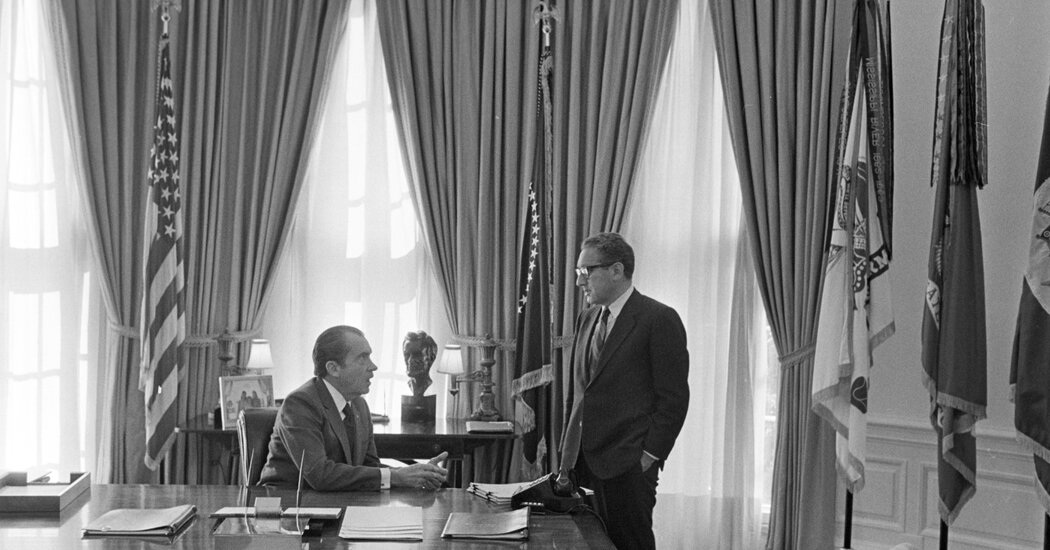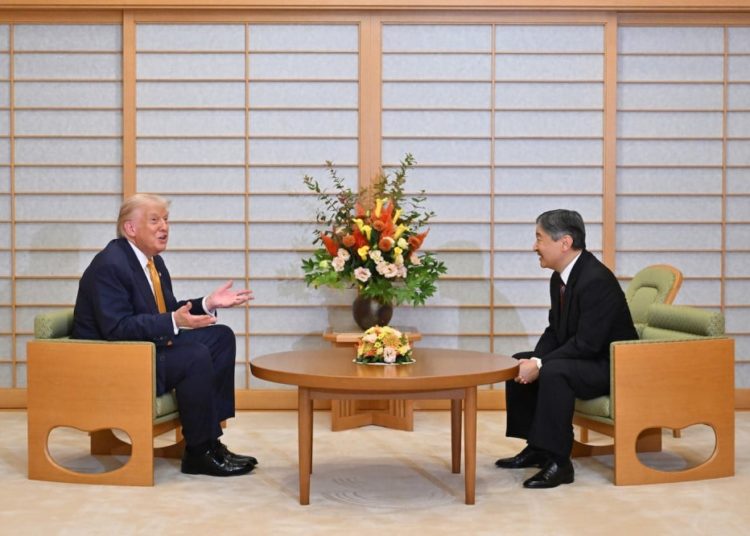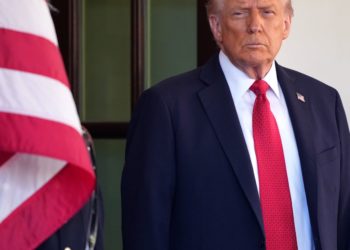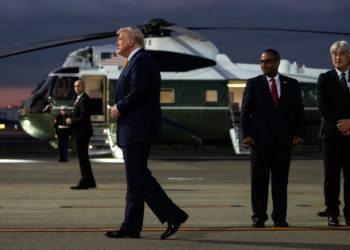An early chapter in Barak Goodman’s documentary “Kissinger” is titled “A Lost World,” a reference to Henry Kissinger’s boyhood — happy, until it wasn’t — in 1920s and ’30s Germany. It was the Nazis’ destruction of that childhood world, the film argues, that drove Kissinger’s adult quest to keep his new home, the United States, safe.
As you watch Goodman’s judicious, evenhanded film, being shown in two parts Monday and Tuesday on PBS’s “American Experience,” you may find yourself seeing beyond the history and thinking of our own lost world — that relatively stable America that Kissinger was so determined to protect.
Any honest consideration of Kissinger’s long — he died at 100 in 2023 — and storied life as a diplomat, political consigliere and all-around celebrity will, to some degree, put him on trial: Are we looking at a pragmatic patriot or a war criminal? Goodman lays out the evidence conscientiously and calls copious witnesses. He is not concerned with arriving at a definitive answer, and there isn’t one, unless it is “both of the above.”
The question of motives versus methods — in Vietnam, in Cambodia, in Chile, in Pakistan — is central to the film, and it is argued passionately by historians, journalists and, most pertinently, people who served under Kissinger when he was Richard M. Nixon’s national security adviser and secretary of state.
The arguments about the relative weights of human rights and American security during the Cold War are vivid and still important. And the issues that Kissinger’s story raises about character and the exercise of American political and military power — secrecy, vanity, cynicism, the paranoiac obsession with loyalty, the need to kowtow to an insecure leader — are often painfully in line with what is currently happening in Washington.
But while the film is clear about the violent turmoil of the 1960s and ’70s, and the horrific consequences of the bombings, incursions and geopolitical manipulations that Kissinger and Nixon oversaw, certain aspects of the picture it presents might make Americans who were alive at the time selectively nostalgic. With some exceptions, such as the targeting of Daniel Ellsberg, the narrative is not about the American government exercising its power against its own people. And while it is in part about how powerful people can go badly wrong, it is also about a time when competence, consistency and intelligence were not sneered at.
Wrestling all of that into a coherent film presents challenges. Kissinger’s career was so profuse that the documentary feels compressed at 2 hours 40 minutes, and it was so varied that the events are hard to shape into a dramatic arc. Many parts of the history have been told so often that it is almost impossible to make them fresh. And at the center of the story, Nixon sits like a black hole, sucking up the energy.
Goodman, a veteran of historical documentary whose dozen previous films for “American Experience” include standouts like “My Lai” and “Scottsboro: An American Tragedy,” attacks the problem with a crispness and professionalism that his subject might have admired. Early chapters on Kissinger as a soccer-playing German-Jewish youth and a precocious, fresh-faced young man in New York’s Washington Heights lend charm and lightness. A revealing segment covers his time in the Army, when he lived through the Battle of the Bulge and was present for the liberation of a German concentration camp.
The later highlights, and lowlights, of Kissinger’s diplomatic career are familiar, and Goodman cannot avoid giving the bulk of the film a rat-a-tat greatest-hits feel. Some of the interview subjects help to bring the recitation to life, including the former New York Times Moscow correspondent Hedrick Smith and the former National Security Council staffers Winston Lord and Roger Morris, who remain on opposite sides regarding their boss’s role in the Vietnam War and the bombing of Cambodia.
Writers and scholars with roots in countries where Kissinger’s decisions played out, including Ariel Dorfman, Sophal Ear, Lien-Hang Nguyen, Khatharya Um and Jianying Zha, offer crucial perspective. The film’s most piercing moment comes not from Kissinger — his face and voice, which appear often, run a tight circuit between debonair and disdainful. It comes in the mute anguish on the face of Tran Van Lam, the South Vietnamese foreign minister, when a reporter asks him about Kissinger’s prediction that his government will soon fall.
The film comes out at a moment when many of the achievements for which Kissinger was most justly celebrated — the first nuclear arms treaty with the Soviet Union, the reopening of American relations with China, his shuttle diplomacy in the Middle East — feel sadly anachronistic, brief respites that have been washed away by the tide of events and the whims of new strongmen around the world. The film itself speaks to the dislocations we are going through: Because of the gutting of federal support for public broadcasting, “Kissinger” is the last new production for “American Experience” until further notice. Historical filmmaking of this quality is already hard to come by; it is not easy to see where it will come from next.
Mike Hale is a television critic for The Times. He also writes about online video, film and media.
The post ‘Kissinger’ Review: What It Used to Mean to Make America Great appeared first on New York Times.




